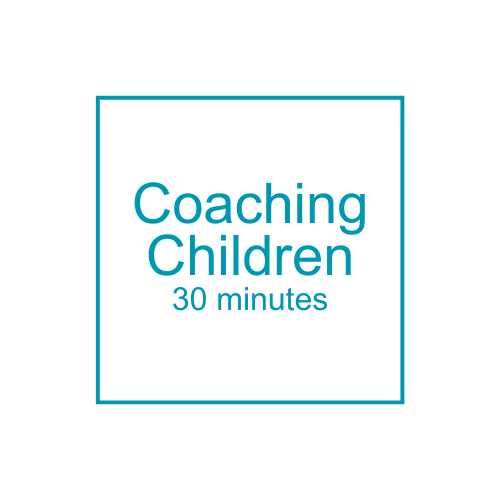Autism and Spiritual Connection: Do Autistic People Feel More Spiritually Connected?

Sensory Sensitivity and Spiritual Awareness
One common aspect of autism is sensory sensitivity. Autistic individuals may notice things more intensely or in different ways—like seeing flickering lights, hearing faint sounds, or feeling textures more strongly.
This heightened awareness can also make them more sensitive to internal feelings and the energy around them.
Dr. Olga Bogdashina, in her book, suggests that many autistic people experience the world in rich, multi-sensory ways.
She shares stories of autistic individuals who report experiences like clairvoyance, telepathy, or feeling a deep connection to nature and the universe.
“For some people with autism, the lines between different realities are unclear. They can easily tap into experiences that others can’t.” — Olga Bogdashina.
Intense World Theory: Heightened Perception and Deep Thinking
The Intense World Theory suggests that autistic brains are not simply less connected but rather are super-connected. This allows for stronger memories, more emotional sensitivity, and a sharp eye for patterns and connections that others may overlook.
These heightened perceptions could lead to deeper spiritual interpretations of the world.
For example, an autistic child might sense energy shifts in a room as the presence of a spirit or see visions that feel spiritual or enlightening.
Monotropic Focus and Spiritual Experience
The monotropism theory explains that autistic individuals often focus deeply on one or a few interests at a time. This intense focus can create unique states of awareness, similar to what experienced meditators or mystics feel.
Autistic people may naturally enter states of flow or deep concentration while engaging in familiar activities, like observing nature or participating in spiritual practices.
What might seem like "stimming" or daydreaming to others could actually be moments of peace, connection, or deeper understanding.
Personal Stories: Voices from the Autistic Community
Many autistic people share experiences that suggest they feel connected to the spiritual world. For instance, author Naoki Higashida expresses a strong bond with nature and universal energy in his book, while Temple Grandin talks about her visual thinking and sense of wonder about the universe, which she sees in a spiritual light.
In online communities, such as Autistic Twitter and Reddit, individuals often share stories about:
- - Communicating with ancestors or spirit guides
- - Seeing auras or sensing energy
- - Having near-death or out-of-body experiences
- - Deeply understanding animals or non-verbal beings
- - Feeling a connection to a greater cosmic consciousness
These experiences resonate with many autistic individuals, regardless of their religious beliefs, hinting at a deeper connection.
Cultural and Historical Insights
In many Indigenous and non-Western cultures, individuals with traits associated with autism were often viewed as spiritual leaders or shamans, with their unique perspectives seen as valuable rather than problematic.
Anthropologist Joan Halifax has written about shamans who displayed signs of neurodivergence, believed to have links to the spirit world. In many cultures, unusual sensory perceptions and altered states of consciousness were thought to help connect with the divine.
Neurodiversity, Trauma, and Spiritual Growth.
There is also a connection between trauma and spiritual awakening. Many autistic people face trauma in a world that doesn't understand them, leading to feelings of exclusion or sensory overload. In various spiritual traditions, suffering is viewed as a pathway to greater awareness or growth.
Psychologist Stanislav Grof, who studied different states of consciousness, theorised that trauma can lead to spiritual experiences that connect individuals to something bigger than themselves.
This aligns with some autistic people's feelings of being "old souls" or having deeper connections after facing challenges.
Exploring Beyond Ordinary Perceptions
Not all autistic individuals feel a spiritual connection, but many do, and their experiences should be recognised and explored instead of dismissed as mere imagination.
While autism may not directly cause spiritual sensitivity, it can influence how people see and understand the world. Whether through enhanced senses, deep focus, or openness to different realities, autistic individuals often exist at the fringes of what is seen as “normal”—and sometimes, that’s where the sacred can be found.
Click below to book an appointment or to find out more about what neurodiverse services we offer.
Many autistic individuals share that they feel a strong link to the spiritual world, often having unique experiences and being sensitive to energies that others might not notice.
For them, this connection can bring comfort, understanding, and a sense of identity.
But what is behind this connection?
Is it something about how autistic brains work, or is it more about the different ways autistic people experience life?
This blog looks at the relationship between autism and spirituality, using research, psychological ideas, and personal stories.
References for this article.
Bogdashina, O. (2010). Autism and the Edges of the Known World: Sensitivities, Language, and Constructed Reality. Jessica Kingsley Publishers.
Markram, H., & Markram, K. (2010). The Intense World Theory – A unifying theory of the neurobiology of autism. Frontiers in Human Neuroscience, 4, 224.
Murray, D., Lesser, M., & Lawson, W. (2005). Monotropism: An Interest-Based Account of Autism. Good Autism Practice, 6(1), 1–16.
Grof, S. (1985). Beyond the Brain: Birth, Death, and Transcendence in Psychotherapy. SUNY Press.
Halifax, J. (1982). Shaman: The Wounded Healer. Thames & Hudson.
Grandin, T. (2006). Thinking in Pictures: My Life with Autism. Vintage.
Higashida, N. (2007). The Reason I Jump: The Inner Voice of a Thirteen-Year-Old Boy with Autism.
We need your consent to load the translations
We use a third-party service to translate the website content that may collect data about your activity. Please review the details in the privacy policy and accept the service to view the translations.








